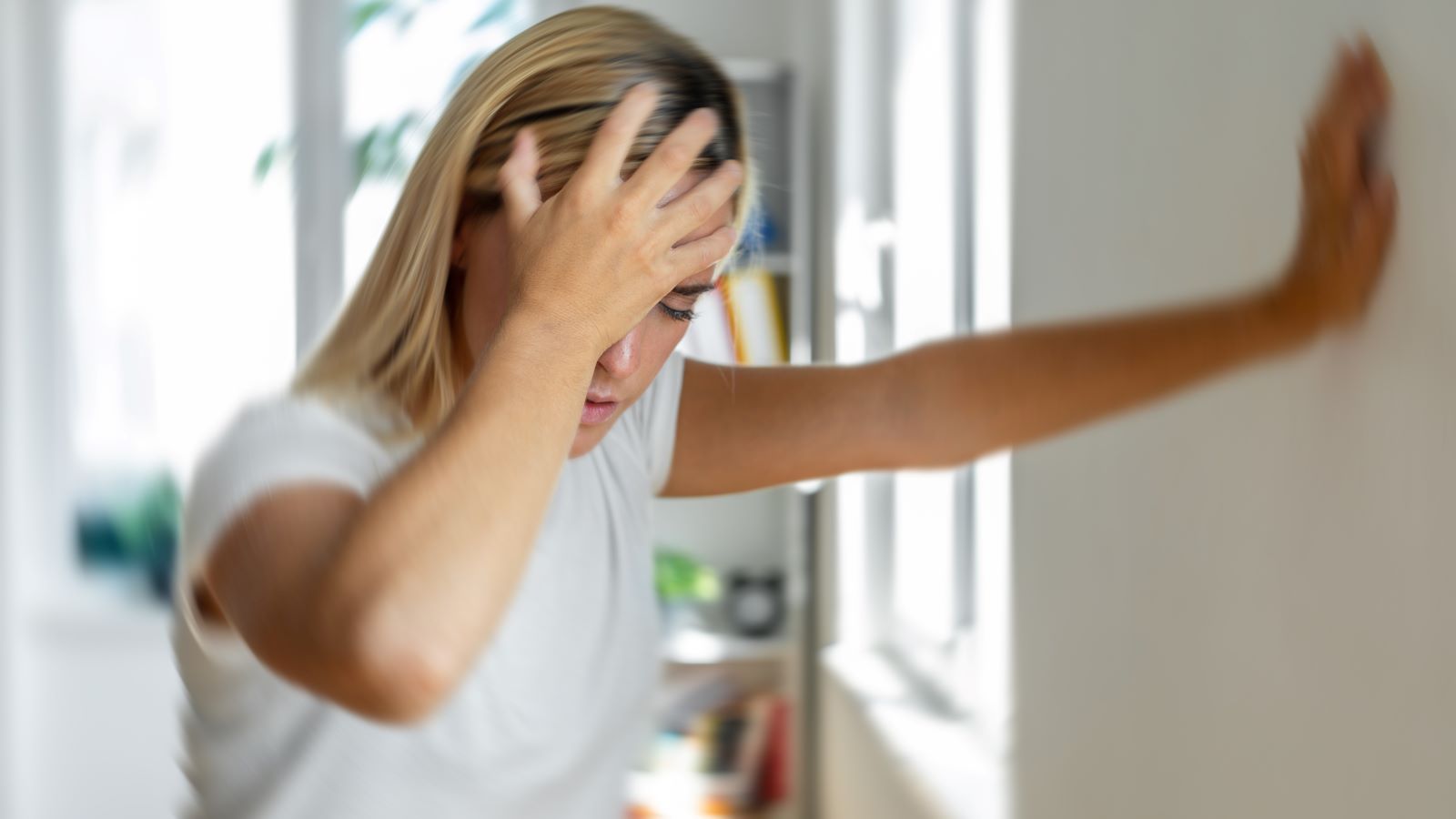<< Back
Why Do I Feel Dizzy When I Stand Up?

October 30, 2025
You hop out of bed or stand up too quickly — and suddenly, the room tilts. Your vision blurs, maybe even goes dark for a second. Then, just as quickly, it passes.
That lightheaded feeling can be unsettling, but it’s surprisingly common.
“Feeling dizzy when you stand up is pretty common,” says Isabel Nees, PA-C, physician assistant with Hartford HealthCare Medical Group. “Most of the time, it’s not dangerous. But sometimes, it can point to an underlying issue.”
Here’s what might be going on.
That feeling’s called orthostatic hypotension
That lightheaded feeling has a medical name: orthostatic hypotension.
“It happens when your blood pressure drops suddenly as you change positions,” says Nees. “Gravity pulls blood down toward your legs when you stand up, and if your body doesn’t adjust quickly enough, less blood makes it to your brain — which makes you dizzy.”
Usually, your body can recover in a few seconds. Your heart rate increases, your blood vessels tighten, and blood flow to your brain returns to normal. But if that response lags, a momentary blackout feeling kicks in.
> Related: 6 Causes of Low Blood Pressure
Common triggers are surprisingly simple
Sometimes, that dizzy feeling comes down to everyday factors you wouldn’t think twice about.
Not drinking enough water, skipping meals, or spending hours sitting still can all make it harder for your body to maintain steady blood flow when you stand.
“Anything that lowers blood volume — like not drinking enough water — can make this more likely,” Nees says. “So can alcohol, hot weather or certain medications.”
But sometimes, it’s a sign of something more
Occasional dizziness is usually harmless. But if it happens often, or comes with other symptoms, it may signal something more serious.
“It’s rare, but frequent or severe dizziness could point to heart problems, neurological conditions or other issues that need attention,” says Nees.
Some possibilities include:
- Heart conditions. An irregular heartbeat, valve issues or heart failure can limit blood flow.
- Neurological issues. Conditions like Parkinson’s disease or neuropathy affect the body’s ability to regulate blood pressure.
- Endocrine problems. Diabetes or adrenal disorders can disrupt blood pressure control.
- Anemia. Low red blood cell counts mean less oxygen gets to your brain.
> Related: 3 Ways Your Primary Care Provider Keeps You Healthy
These simple tips might help
If you know you’re prone to dizziness, the good news is there are easy steps that can help:
- Stand up slowly. Give your body a few seconds to adjust when moving from lying down to sitting, or sitting to standing.
- Tighten your muscles. Crossing your legs, squeezing your calves or making a fist with your hands before standing can help push blood back toward your heart and brain.
- Stay hydrated. Drink water regularly throughout the day, especially before long periods of sitting or standing.
- Eat balanced meals. Skipping meals or eating too much sugar can both contribute to sudden dips in blood pressure.
- Avoid alcohol before long events. Alcohol can worsen dehydration and make dizziness more likely.
“These small changes can go a long way in reducing symptoms,” says Nees. “But if you’re dizzy often, or the episodes are severe, it’s time to talk with your provider.”